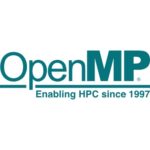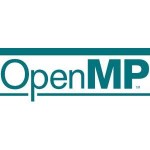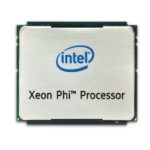Today NVIDIA released Version 17.7 of PGI 2017 Compilers and Tools, delivering improved performance and programming simplicity to HPC developers who target multicore CPUs and heterogeneous GPU-accelerated systems.
Cavium Joins the OpenMP Effort for ThunderX2 Processor
Today the OpenMP ARB organization announced that Cavium has joined as a new member. “Cavium’s membership in the OpenMP ARB further highlights our strong belief in industry’s demand for parallel computing and the significance of the ARM Architecture,” said Avinash Sodani, Distinguished Engineer at Cavium. “Cavium’s strong product portfolio includes ThunderX2, a compelling server-class, multi-core ARMv8 CPU suited for the most demanding compute workloads. We look forward to working with other OpenMP members in furthering OpenMP standards to meet the challenges of the Exascale era.”
SPEC/HPG hardware acceleration benchmark adds OpenMP Suite
Today SPEC’s High-Performance Group released a new version of its SPEC ACCEL software that adds a suite of OpenMP applications for measuring the performance of systems using hardware accelerator devices and supporting software. SPEC ACCEL also measures performance for computationally intensive parallel applications running under the OpenCL and OpenACC programming models.
The OpenMP application benchmarks are the first of their kind and now give our customers the opportunity to compare hardware configurations based on the most popular open-programming models,” says Guido Juckeland, SPEC/HPG vice chair. “We look forward to a wide variety of SPEC ACCEL result submissions on the SPEC website and a number of research papers comparing various optimization settings on multiple platforms.”
OpenMP ARB Appoints Duncan Poole and Kathryn O’Brien to its Board
Today the OpenMP ARB announced the appointment of Duncan Poole and Kathryn O’Brien to its Board of Directors. As industry veterans, they bring a wealth of experience to the OpenMP ARB.
The OpenMP API Celebrates 20 Years of Success
OpenMP is a good example of how hardware and software vendors, researchers, and academia, volunteering to work together, can successfully design a standard that benefits the entire developer community. Today, most software vendors track OpenMP advances closely and have implemented the latest API features in their compilers and tools. With OpenMP, application portability is assured across the latest multicore systems, including Intel Xeon Phi processors.
How GPU Hackathons Bring HPC to More Users
“GPUs potentially offer exceptionally high memory bandwidth and performance for a wide range of applications. The challenge in utilizing such accelerators has been the difficulty in programming them. Enter GPU Hackathons; Our mentors come from national laboratories, universities and vendors, and besides having extensive experience in programming GPUs, many of them develop the GPU-capable compilers and help define standards such as OpenACC and OpenMP.”
Call for Submissions: OpenMPCon & IWOMP at Stony Brook University in New York
This year, the OpenMP Architecture Review Board is celebrating the 20th anniversary of the first OpenMP API specification with a pair of events: OpenMPCon and the International Conference on OpenMP (IWOMP). Both events will take place the week of September 18 at Stony Brook University in New York. “Developers attending this year’s OpenMPCon and IWOMP conferences will have the added bonus of joining us to celebrate the vital contribution OpenMP has made by enabling high-performance computing over the past two decades and will also help us to shape OpenMP’s next twenty years.” said Michael Klemm, OpenMP CEO.”
Five Ways Scale-Up Systems Save Money and Improve TCO
The move away from the traditional single processor/memory design has fostered new programming paradigms that address multiple processors (cores). Existing single core applications need to be modified to use extra processors (and accelerators). Unfortunately there is no single portable and efficient programming solution that addresses both scale-up and scale-out systems.
Managing Lots of Tasks for Intel Xeon Phi
“OpenMP, Fortran 2008 and TBB are standards that can help to create parallel areas of an application. MKL could also be considered to be part of this family, because it uses OpenMP within the library. OpenMP is well known and has been used for quite some time and is continues to be enhanced. Some estimates are as high as 75 % of cycles used are for Fortran applications. Thus, in order to modernize some of the most significant number crunchers today, Fortran 2008 should be investigated. TBB is for C++ applications only, and does not require compiler modifications. An additional benefit to using OpenMP and Fortran 2008 is that these are standards, which allows code to be more portable.”
Programming for High Performance Processors
“Managing the work on each node can be referred to as Domain parallelism. During the run of the application, the work assigned to each node can be generally isolated from other nodes. The node can work on its own and needs little communication with other nodes to perform the work. The tools that are needed for this are MPI for the developer, but can take advantage of frameworks such as Hadoop and Spark (for big data analytics). Managing the work for each core or thread will need one level down of control. This type of work will typically invoke a large number of independent tasks that must then share data between the tasks.”









